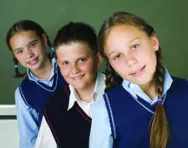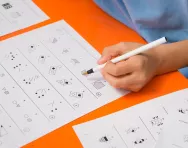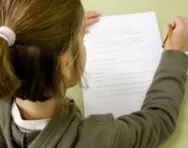Important update from TheSchoolRun
For the past 13 years, TheSchoolRun has been run by a small team of mums working from home, dedicated to providing quality educational resources to primary school parents. Unfortunately, rising supplier costs and falling revenue have made it impossible for us to continue operating, and we’ve had to make the difficult decision to close. The good news: We’ve arranged for another educational provider to take over many of our resources. These will be hosted on a new portal, where the content will be updated and expanded to support your child’s learning.
What this means for subscribers:
- Your subscription is still active, and for now, you can keep using the website as normal — just log in with your usual details to access all our articles and resources*.
- In a few months, all resources will move to the new portal. You’ll continue to have access there until your subscription ends. We’ll send you full details nearer the time.
- As a thank you for your support, we’ll also be sending you 16 primary school eBooks (worth £108.84) to download and keep.
A few changes to be aware of:
- The Learning Journey weekly email has ended, but your child’s plan will still be updated on your dashboard each Monday. Just log in to see the recommended worksheets.
- The 11+ weekly emails have now ended. We sent you all the remaining emails in the series at the end of March — please check your inbox (and spam folder) if you haven’t seen them. You can also follow the full programme here: 11+ Learning Journey.
If you have any questions, please contact us at [email protected]. Thank you for being part of our journey it’s been a privilege to support your family’s learning.
*If you need to reset your password, it will still work as usual. Please check your spam folder if the reset email doesn’t appear in your inbox.
How your Year 6 child develops

The last year of primary school is a time of transition for your child. Not only are they having to get their head around the impending move to secondary school, but they’re also experiencing some major physical and emotional changes as they head towards adolescence.
What’s going on in there?
Your year 6 child is likely to seem increasingly grown-up. They’re keen to learn, enjoy school, and have plenty of self-confidence. Your child’s moral code is highly developed with a strong sense of justice, and they will complain bitterly if they think they’re being treated unfairly.
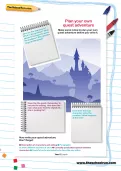
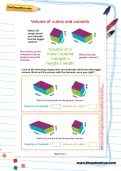
Start the Year 6 Learning Programme!
- Weekly maths & English worksheets direct to your inbox
- Follows the National Curriculum
- Keeps your child's learning on track
At 10 to 11, your child is a socially competent being who likes to be part of the ‘in group’. “Your child is less dependent on their parents and more reliant on friends, as well as developing an interest in the opposite sex,” says chartered educational psychologist and educational adviser Susan Brooks.
Your child has a close social circle and will avoid children who are not in their gang. They probably have one best friend, as well as an adult or teenager who they idolise – perhaps an older cousin or a leader from an extracurricular club.
Although your child is becoming more mature and independent, they’re still close to their parents. They’re typically affectionate with their mother, and fiercely proud of their father. They’re getting better at handling their emotions, and are less likely to be tearful or angry than in the past, although they can be moody and value privacy.
Girls are likely to start their periods during this school year or the next, and boys are beginning their puberty growth spurt, which can lead to concerns about weight gain. “Body awareness is critical at this age, and children are often increasingly conscious of fashion, but they still need guidance on how to dress appropriately,” adds chartered educational psychologist Julia Busch Hansen.
Potential pressure points
During Year 6, the main sources of pressure on your child are likely to come from school and friendships. These include:
- Choosing a secondary school, and waiting to hear if they have a place.
- Sitting KS2 SATs and for some children, the Eleven Plus exam.
- Coping with friendship issues, including bullying, particularly cyberbullying (online or by text).
- Competing with other children on material grounds, for example who has the best mobile phone or the coolest trainers.
- Physical and hormonal changes with the onset of puberty.
Warning signs to watch out for
Signs that your child may be struggling with the pressures of Year 6 and of growing up in general include:
- Tearfulness or angry, violent outbursts.
- Sleep problems.
- Body image issues, such as expressing worries about being fat.
- Dieting or skipping meals.
- Frequent stomach aches or headaches.
- Withdrawing from friends and family.

